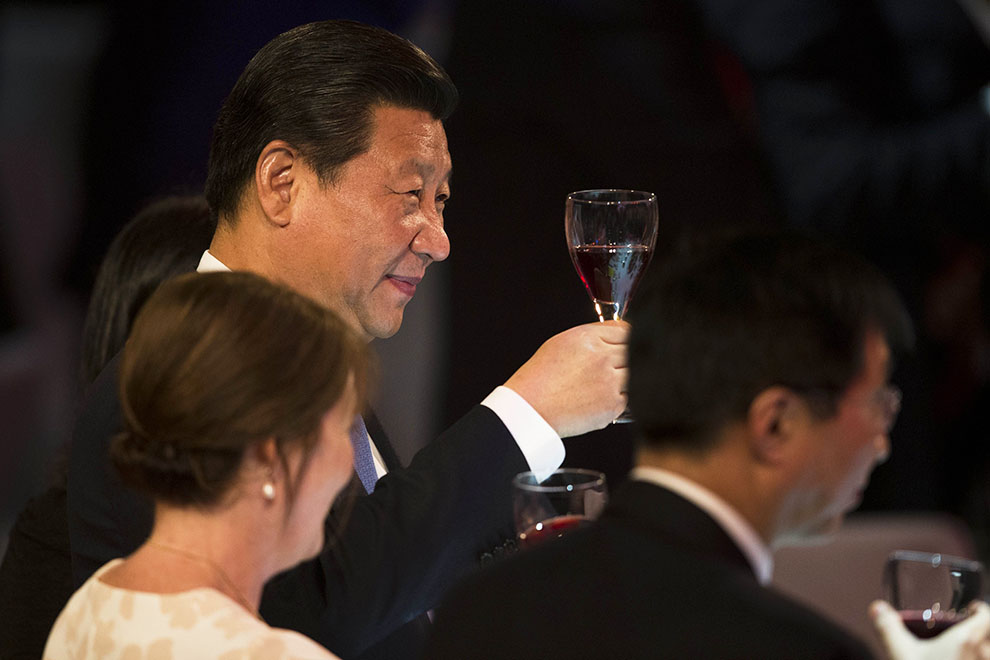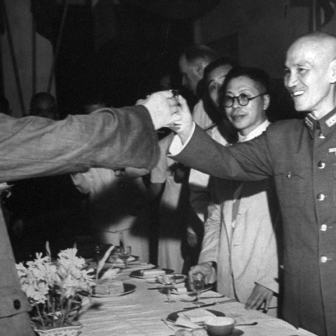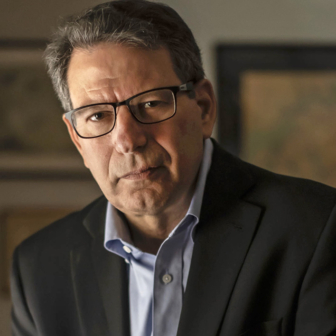The second series of the US drama House of Cards proved to be a hit not just at home but also in China when it was released in 2014. Chinese netizens enjoyed Kevin Spacey’s portrayal of congressman Frank Underwood, a man who plots, lies and murders his way to the top, and its depiction of a political milieu in which principles and altruism are regarded as signs of clinical weakness. As Underwood cynically observes in one of the episodes, the only real rule in this world is “eat or be eaten.”
Part of the attraction might be that the series confirms Chinese viewers’ worst assumptions about American politicians and their attitudes towards China. In one episode of the first series, which showed the breakdown of a dialogue between China and the United States about, of all issues, cyber security, the two countries traded diplomatic insults. Characters talked of “beating up on China,” “not backing down to the Chinese” and “showing them we are strong and mean business.” Most Chinese already knew what that episode served to underline: that when American politicians talk about their new rival their real aim is to look decisive in front of their home constituencies.
Beyond its excellent storylines and acting, though, there is another reason why there might be a sizeable Chinese audience for a drama like House of Cards. Implicit rather than explicit meanings are the key here. For many viewers, Washington is not the uncontested centre of Machiavellian power plays and victories of the ruthless over the weak. That accolade belongs to a political culture much closer to home, in Beijing.
After all, Beijing politics, at least in recent history, has followed a far more brutal winner-takes-all narrative than the Washington variety. Over the past half century, a pretender to the throne has ended up dead in a mysterious plane crash (Lin Biao in 1971), another virtually disappeared under house arrest (Zhao Ziyang) and, in the most recent case, yet another was implicated in the cover-up of the murder of a foreign businessman (Bo Xilai). The son of a high official was killed, and two young semi-naked women seriously injured, when his Ferrari crashed in Beijing. Billions of dollars have been lost to corruption, and the dubious activities of well-connected individuals reach into almost every region in the world – to Africa (Hu Jintao’s son’s business deals, for instance), Australia (Zeng Qinghong’s son’s vastly expensive residence), and Britain (the curious dealings of Bo Xilai’s wife Gu Kailai during her frequent visits there).
The best that the United States can put up against this is Richard Nixon’s Watergate conspiracy and overheated theories about the death of John F. Kennedy – small change compared to the all-out internecine warfare that consumed most of late Maoist China or, more recently, the brutal use of anti-corruption purges to terminate political careers.
House of Cards and its fictional world have another eerie parallel with real life China. Congressman (and later vice-president) Underwood uses “brutal pragmatism” to justify whatever course of action he feels compelled to take. Underlying his pattern of behaviour is a final justification: power. Some go after money, wealth or sensual pleasure, Underwood muses in one aside, but these are mere baubles. Power, he says, is like an old mansion that can stand forever, impregnable and secure, not some shoddy structure that looks great today but is half-collapsing by tomorrow.
However high the stakes are in the world’s last superpower, in Xi Jinping’s China a single misstep can overwhelm a party figure and his or her family and friends in a far more cataclysmic manner. An old Chinese saying puts it clearly enough: when an official is raised up, his world rises around him, right down to his livestock and servants. When he falls, it all plummets with him. There are few more merciless, unsentimental and uncharitable environments on the planet.
One of the puzzles of China’s anti-corruption campaign over the last eighteen months has been how Xi himself has had the courage to go after former colleagues, and take on some of the most entrenched networks in the country, even at the risk of their biting back at him. Here is a man whose sole asset, as a provincial official in the 1990s, seemed to be his link to his father, and who barely managed to scrape into the 1997 Communist Party central committee. How did he come to sit atop almost every conceivable position of power in the country, having cleared aside almost all possible contenders and competitors? Such a progression would make Frank Underwood purr in admiration.
We can start to account for Xi’s dominance by saying that he has shown an instinctive grasp of where power lies and how to tap into it. From quite early, he evidently made clear to colleagues that using party positions for the ends pursued by so many of them – to feather their own nests and siphon vast amounts of money and material goods to their families and their pals – was, as Underwood said sneeringly of his self-serving congressional colleagues, “a game for rookies.” Wealth is a part of power, but by no means all of it, and Xi has kept his family out of the super league of business wheeler-dealing that has stymied so many others. In an odd way, the famed 2012 Bloomberg report about the wealth of his immediate family helped him in this endeavour by showing just how small the amounts involved were. Compared to the tens of billions linked to figures like the disgraced Zhou Yongkang, these tens of millions are loose change in modern China.
Being relatively clear of major-ticket corruption means that Xi has a powerful weapon to aim at others around him. When a political issue comes along that makes them a problem or a threat, he can use their key vulnerability (material greed and larceny) to bring them to their knees. To this extent, Xi is a Maoist. For all his many faults, Mao was interested far less in the material benefits of power than in the hold it gave him over others. Xi seems to operate on the same principle.
House of Cards is, of course, fiction. But it is interesting that so many in China, and outside it for that matter, seem to think that their own leaders carry on in such a ruthless, unprincipled way – judging, at least, from online comments. As Robert Caro wrote in his magisterial biography of the greatest manipulator of power of them all, Lyndon B. Johnson, power is the final great revealer – and in the case of Xi Jinping it is revealing just how talented he has been at collecting the sources of authority in his country, keeping them close to him, and clearing opponents out of the way.
The anti-corruption campaign has been a masterclass in this technique. But there is one final question we will have to wait for an answer to, and that is the most important one. Now he has all this power, what does Xi intend to do with it? This will be the year in which the answer starts to become much clearer. •




